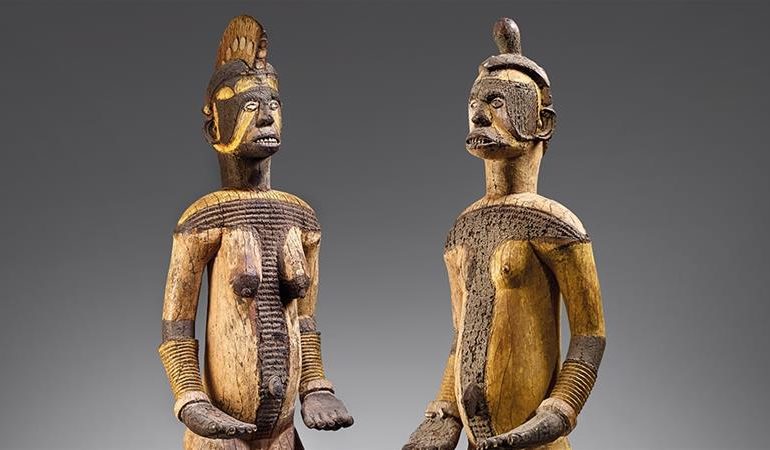Christie’s, a British auction company, has defied criticisms to sell two life-sized wooden statutes with Nigerian roots for an estimated N86 million ($239,000) in an online auction.
The statues, dubbed “A Couple of Igbo Figures Attributed to The Akwa Master”, had been the subjects of heated controversies with many questioning how the company got possession of them.
But at Monday’s auction in Paris, the statues were sold to an online bidder. Another major “Urhobo statue” valued at 900,000 euros ($1m), however, failed to sell.
Theophilus Umogbai, curator of National Museum in Benin, Edo state, claimed that the statutes were stolen during the Biafran war. He also asked Christie’s “and other auction houses to halt the process immediately”.
“They have to repatriate such works and pay compensation to us in the interest of natural justice,” he told Aljazeera.
In the same vein, Chika Okeke-Agulu, a scholar at Princeton University in the US, took a swipe at the auction company for trying to deny the origin of the statutes.
“I have no problem with the auction business as such; but you cannot twist history, even change terminologies in “African art”, just because you want to make dirty money out of cultural heritage from a part of the world you don’t think matters that much,” he wrote on his Instagram page on Monday.
View this post on InstagramAdvertisement
Okeke-Agulu, a professor of African and American Diaspora Art, had earlier launched a campaign to halt sales of the statutes.
Christie’s, however, dismissed insinuations that the statues were illegally acquired, claiming they were among a number of “African masterpieces” that came from an undisclosed “important European private collection”.
“These objects are being lawfully sold having been publicly exhibited and previously sold over the last decades prior to Christie’s involvement,” the auction house told Associated Press (AP).
The company also said there was “verifiable documented provenance” that the objects were taken out of Nigeria before 2000, as the law required.
It added that they must have been sold to Jacques Kerchache, the French art dealer, in Cameroon or in Paris, with the consent of relevant local authorities.
Several African countries have launched campaigns to demand repatriation of artworks and religious objects looted from them by European powers during the colonial era.
In 2019, Emmanuel Macron, French president, had ordered the return of 26 treasures to Benin, which borders Nigeria.
Copyright 2024 TheCable. All rights reserved. This material, and other digital content on this website, may not be reproduced, published, broadcast, rewritten or redistributed in whole or in part without prior express written permission from TheCable.
Follow us on twitter @Thecablestyle

